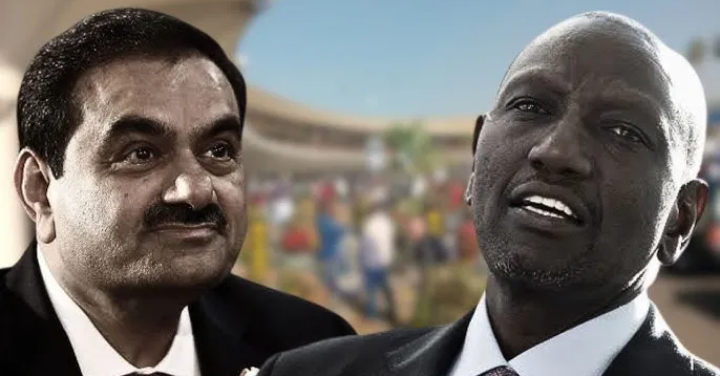Kenya faced immense pressure from its international partners over the leasing of Jomo Kenyatta International Airport (JKIA) to the Adani Group, an Indian firm that had been linked to several integrity concerns.
This pressure grew particularly intense due to the ongoing geopolitical crises, including the Russia-Ukraine and Israeli-Palestinian conflicts, which added to the urgency of the situation.
Sources have confirmed that these external concerns, combined with internal challenges, led to the sudden cancellation of the controversial deal.
The Adani Group, headed by billionaire Gautam Adani, had struck a deal with the Kenyan government to take over the management and operations of JKIA, a key gateway to the region.
However, the deal sparked widespread criticism and fears within Kenya.
The opposition, the clergy, and even members of the public strongly opposed the move, arguing that it was akin to selling off national assets to foreign interests.
These criticisms were compounded by concerns over the security and integrity of the airport, which is of strategic importance to Kenya and the entire East African region.
One of the key issues that led to the pressure on President William Ruto was the lack of sufficient financial backing from Adani Group.
The company had promised to inject only 30% of the necessary funding to refurbish JKIA, raising doubts about its ability to carry out the project.
This raised red flags among Kenya’s development partners, who were worried about the potential risks associated with such a high-profile project being entrusted to a firm with questionable financial stability.
Furthermore, the Adani Group was already embroiled in a big legal and financial scandal.
In the United States, top executives of the company were charged with bribery and fraud over a scheme to secure solar power contracts worth billions of shillings.
This indictment brought international attention to the Adani Group’s questionable practices.
The U.S. Department of Justice accused Adani and his associates of paying over $250 million in bribes to Indian officials and misleading investors in the U.S.
These charges intensified the pressure on the Kenyan government to distance itself from Adani, as continuing to engage with the firm risked damaging Kenya’s reputation on the global stage.
As a result, the U.S. government, along with other international stakeholders, made it clear that Kenya’s involvement with the Adani Group was problematic.
The Kenyan leadership faced increasing scrutiny, both locally and internationally, over its decision to move forward with the deal.
The growing opposition from the public and political leaders, coupled with the legal troubles of Adani Group, left President Ruto with little choice but to cancel the agreements.
The decision to cancel the deals was seen as a move to regain public support and ensure that Kenya’s national assets, particularly strategic ones like JKIA, were not compromised.
While this action was praised by some as a victory for accountability, it also highlighted the complex and sometimes covert role that foreign influence and geopolitics play in shaping major decisions in developing countries.
The cancellation of the deal with Adani served as a reminder of the delicate balance that Kenya, like many other nations, must strike between attracting foreign investment and protecting its sovereignty and national interests.





















Add Comment